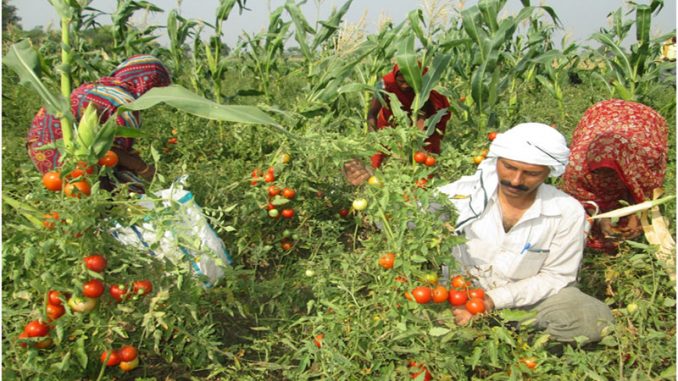
MUMBAI // When a new organic food venture launched in Hyderabad 12 years ago, it had a hard time convincing farmers in India to take up organic methods.
They were sceptical about the change, especially given that it takes up to four years for a farm’s soil to become free of pesticides and chemicals.
But the efforts of the company, 24 Mantra Organic, paid off, and today it works with almost 30,000 farmers and its products, ranging from lentils to spices to juices, are sold in more than 1,500 shops in India and overseas.
There have been instances in which Indian food exports have fallen foul of international standards, which furthers the case for organic farming. Food safety inspectors in the UAE last month found potentially dangerous levels of chemicals and pesticides in some fruit and vegetable exports from India.
“Around 10 years back when we had just started out, people were not very conscious about what they were eating. Affordability of organic products has also increased along with the rise in purchasing power of the people. The organic sector in India is set to grow further.”
He says: “With government support and incentives, the farmers are now willing to try out organic farming, especially since there are many success stories around them.”
One such success story can be found in Kerala, in the south: Bijumon Kurian grows coffee and spices organically in Kottayam in Kerala.
“Organic farming is growing annually and the Indian government is promoting organic farming,” says Mr Kurian, who is also the managing director of Plantrich Agritech, which is an accredited supplier of fair-trade certified and organic food products to the European Union, and also exports to the Middle East.
“There is an awareness among the consumers for the global movement of organic and it will be one of the answers for climate change and chemical farming is polluting the air, soil and water, so there is a trend towards organic farming in India,” he says.
Leading the way is Sikkim in north-east India. Earlier this year, it became the first state in the country to become completely organic. This was achieved after the local government in 2003 declared that Sikkim would become an organic farming state and eventually banned the sale of chemical products for use on farmland.
Madhya Pradesh has the biggest area of farmland under organic certification, followed by Himachal Pradesh and then Rajasthan, according to the Agricultural and Processed Food Products Export Development Authority (Apeda), which is part of the Indian government.
Source: The National

Leave a Reply